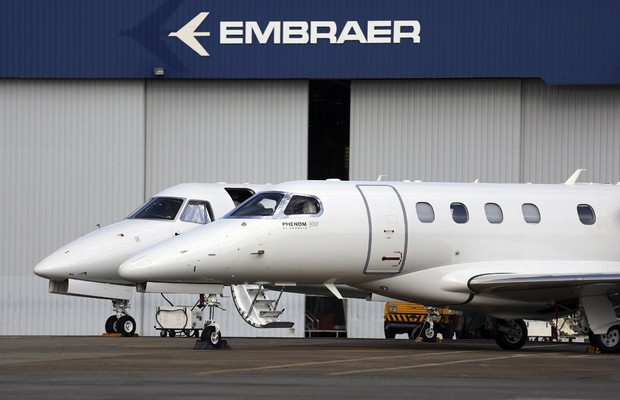
The US airline Skywest has announced that it may suspend the delivery of Embraer jets if the United States government maintains a 50% tariff over Brazilian products. The measure, defended by the management of President Donald Trump, is expected to take effect from August 1.
“We have a feeling that people are understanding the importance of this for small communities in the United States, the economic impact of this for our country. We will continue to fight hard to advance on the tariff issue,” said Skywest CEO, chip Childs, during a press conference last week, presenting the financial result of the company for the second quarter.
Childs has confirmed that Skywest currently has 74 Embraer aircraft commissioned, with expected deliveries until 2032. “We are not willing to pay a 50% rate on new aircraft deliveries. If the 50% rate with Brazil is implemented, we plan to work with our main partners and Embraer to postpone delivery until the tariff situation is resolved,” he said.
The scenario is carefully accompanied by sectors of the Brazilian industry. According to a survey by the Economics and Business Finance Management of the Minas Gerais State Federation of Industries (FIEMG), the impact of the new tariff on Brazilian exports can reach R $ 175 billion in the long run. The estimate also points to a 1.49% drop in Gross Domestic Product (GDP) and elimination of up to 1.3 million jobs.
In a hypothesis of retaliation by Brazil, with a 50% tax on imports from the US, the economic impact would be even deeper. GDP could retreat R $ 259 billion, equivalent to 2.21%, with an estimated loss of 1.9 million jobs, a reduction of R $ 36.18 billion in salary land and falling R $ 7.21 billion in tax collection.
The United States is the second largest destination of Brazilian exports, behind only China. In 2024, Brazil’s exports to the US totaled US $ 40.4 billion, equivalent to 1.8% of national GDP. The main exported products include mineral fuels, iron and steel, mechanical machinery and equipment, aircraft and coffee.
In addition to being an important commercial partner, Brazil is also one of the ten largest markets for US exports, receiving about $ 60 billion in products and services per year. More than 6,500 small companies from the United States depend on Brazilian inputs. About 3,900 US companies maintain direct investments in Brazil.
The US government’s justification for raising tariffs includes the progress of investigations against former President Jair Bolsonaro (PL). According to Washington, the measure is inserted in the scope of Section 301, a device that authorizes commercial sanctions in the face of unfair practices. The United States Commercial Representative Office (USTR) has also begun an investigation into Brazilian commercial policies.
The Brazilian government reacted. President Luiz Inacio Lula da Silva stated that the country could use the economic reciprocity law as an instrument of response. The legislation allows Brazil to adopt contracted, including review of commercial concessions, changes in intellectual property rules and restrictions on foreign investment.
In addition to internal actions, the Federal Senate sent an official entourage to Washington to discuss directly with US parliamentarians the impacts of the tariff. The Brazilian delegation held, on Tuesday, its first meeting with diplomatic authorities and specialists in international trade at the residence of the Brazilian Ambassador in the US, Maria Luiza Viotti.
Senators Jacques Wagner (PT-BA), Rogério Carvalho (PT-SE), Carlos Viana (Somos-MG), Nelsinho Trad (PSD-MS), Esperidião Amin (PP-SC), Teresa Cristina (PP-MS), Marcos Pontes (PL-SP) and Fernando Farias (MDB-AL). Also present was the ambassador Roberto Azevêdo, former director general of the World Trade Organization (WTO).
The mission seeks to negotiate a diplomatic exit to prevent the measure from affecting bilateral trade between the two countries. The outlook for suspension of Embraer deliveries to Skywest is considered an alert for possible impacts on other exporting sectors such as agribusiness, mining and technology.
The National Confederation of Industry (CNI) and other entities in the productive sector have reinforced appeals by a rapid and rapid resolution of the dispute. The negotiations are still in progress, without a definition of the possibility of revision or suspension of the fare before the expected date for its entry into force.
The commercial impasse adds to a moment of diplomatic and geopolitical tension between the two countries, with potential consequences on investments and broader international relations.
Source: https://www.ocafezinho.com/2025/07/28/tarifaco-de-trump-ameaca-embraer-e-gigante-dos-eua-cogita-adiar-entrega-de-jatos/

